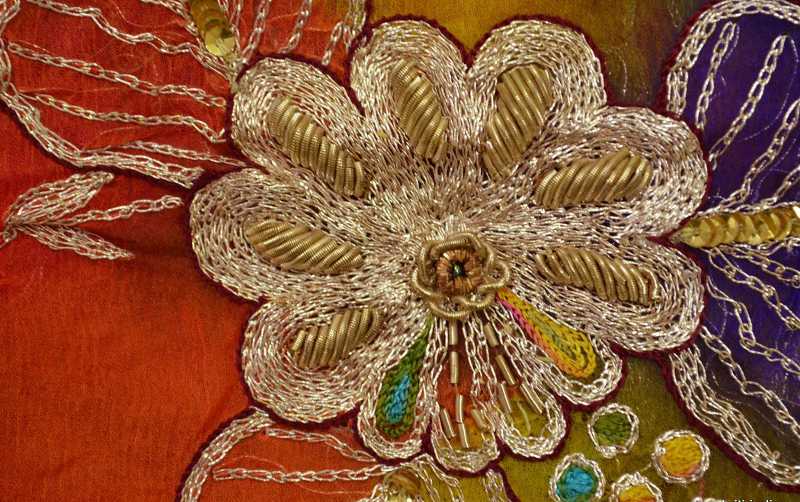===
1590,
10
===

=== |
 |
raat kaa pahnaa haar jo ab tak din ko utaaraa un ne nahii;N
shaayad miir jamaal-e gul bhii us ke gale kaa haar hai aaj
1) the garland that was put on last night, that up till now, in the day, she hasn't taken off--
2) perhaps, Mir, even/also the beauty of the rose is 'a garland on her neck', today
gale kaa haar honaa : 'To be or become as a necklace (to), to hang round the neck (of a person)'. (Platts p.1215)
FWP:
SETS == IDIOMS
MOTIFS
NAMES
TERMSThis ghazal is the second of a set of two about which SRF makes special claims for an over-all 'musical' effect; see {1589,1} for his discussion.
The idiom of becoming 'a garland on the neck' of someone seems to connote adoration and a degree of perhaps almost vexing adhesion; it seems that the garland can't readily be removed, but insists on staying wrapped around the adored one. Thus it might eventually be a burden rather than an adornment.
When I ask myself about the kind of over-all 'musical' effect that SRF sees in this ghazal and the previous one, I have to admit that I can't identify any such special effect. Mir has lots of ghazals that are pleasing to recite rapidly, but if you combined this ghazal with a bunch of randomly chosen ones and asked me which one SRF considered to have this special 'musicality', I'd be at a loss to say (except that these ghazals are unusually long). The other part of his claim is that none of the verses in these two ghazals are really all that good in themselves; there I'd mostly have to agree. I'll be careful to note any other ghazals about which SRF makes this claim, so that we can have more data if possible. Since the claim is a holistic, impressionistic one, you, dear reader, can thus form your own judgment.